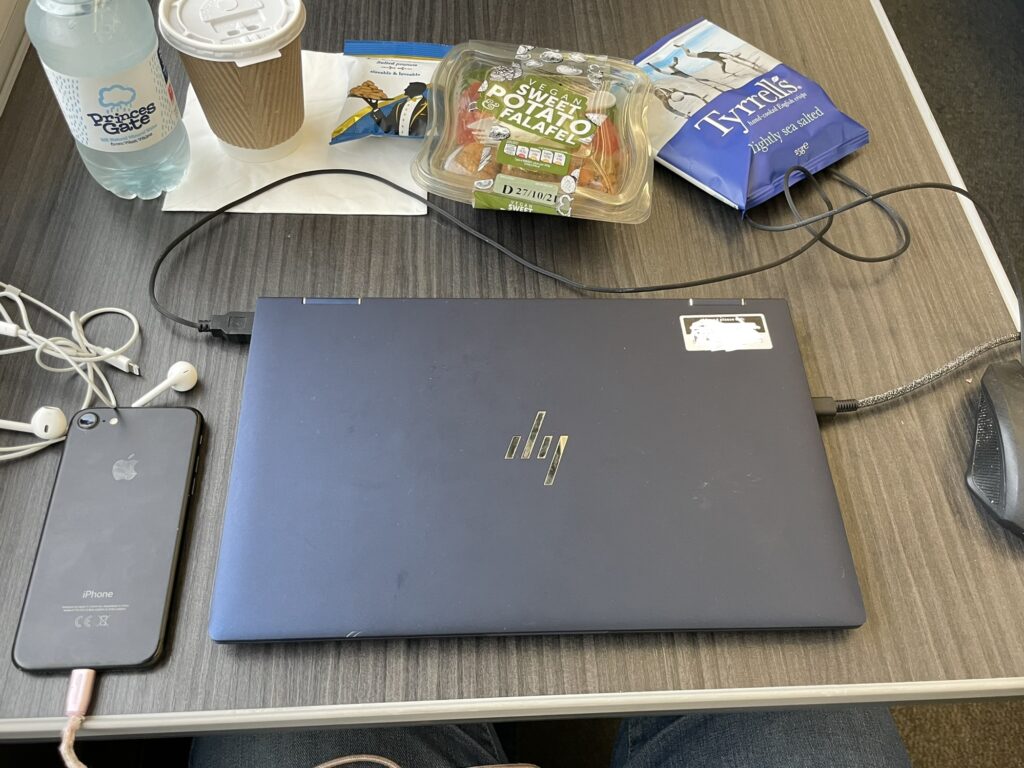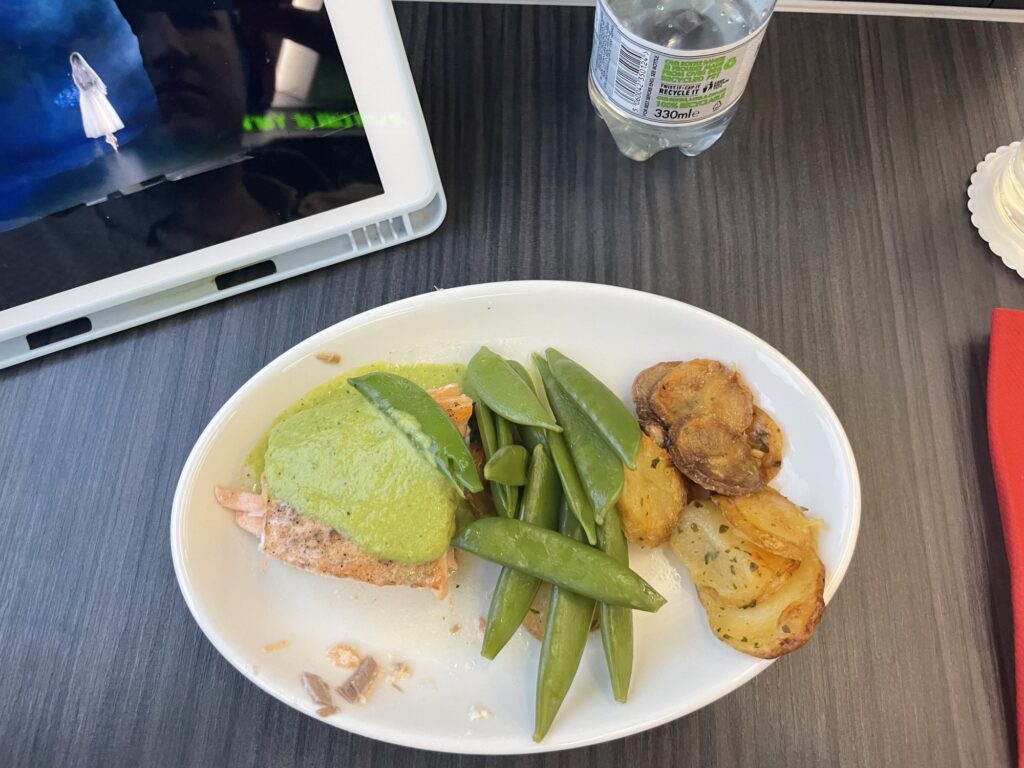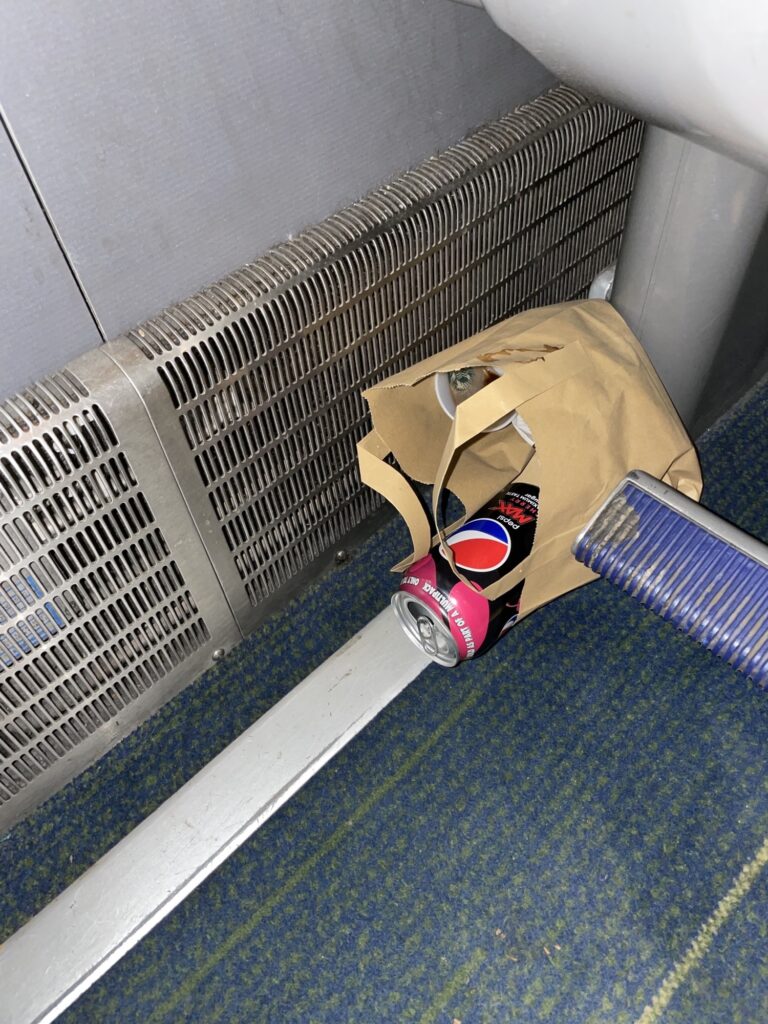 In Great Britain, where true high-speed rail remains the stuff of dreams (outside of Eurostar), point-to-point air and train services are often broadly similar in terms of a traveller’s time commitment. For instance, the train from London King’s Cross to Edinburgh takes roughly 4.5 hours, making it comparable to the overall air journey when one includes ground transfers and security for the latter.
In Great Britain, where true high-speed rail remains the stuff of dreams (outside of Eurostar), point-to-point air and train services are often broadly similar in terms of a traveller’s time commitment. For instance, the train from London King’s Cross to Edinburgh takes roughly 4.5 hours, making it comparable to the overall air journey when one includes ground transfers and security for the latter.
Since the Covid pandemic, however, rail travel in the UK has significantly deteriorated, with the reliability of certain mainline services taking a hit. Even so, first class train travel can offer a solid product. And the speed of flying doesn’t always measure up to the benefits of riding the rails.
The biggest difference between travelling by train and by air is, of course, the space appointed to each passenger. While a British Airways Club Europe passenger may benefit from an empty middle seat in a seat triple, they will still be sitting on the same hard product as offered in economy class. Naturally, the Club Europe living space pales in comparison to the spacious 2+1 seating that can be enjoyed in first class on long distance trains in the UK.
Trains also excel on the accessibility front. Avanti West Coast, for example, doesn’t mince words: “Need to be close to the toilet? Need a seat that’s suitable for wheelchairs? Take a look at the Avanti seating plan to understand what seats work best for your needs before you book. We’ve highlighted where the wheelchair-accessible seats are in our carriage plans for each of our train types…”
The aviation industry, meanwhile, has yet to outline a clear plan for allowing passengers to remain in their own wheelchairs during flight, though there’s no shortage of ideas in the aircraft interiors market.
If your train does run late, as is now often the case in the UK, you can still work on board the train during the delay. The additional legroom and space to spread out enables one to effectively set up a mobile office.

Being able to use a laptop and mouse on the train makes it easier to get work done. Image: Fintan Horan-Stear
Train travel also offers benefits for leisure passengers, enabling couples to comfortably sit together, and groups to avail of tables that facilitate face-to-face exchanges.
On this point, airlines should take note: as aviation emerges from the Covid crisis, premium leisure travel is on the rise and family travel is rebounding.
As fellow RGN contributor John Walton aptly stated in a recent article, “Airlines spent the best part of forty years designing business class as the office-in-the-sky concept, but premium leisure travellers don’t want to feel like they’re travelling in a boardroom — or even less a work cubicle — if they’re spending up on a vacation, especially with a partner.”
How can hard product and experiences cater to this demographic while meeting the needs of road warriors?
In terms of onboard service, passengers travelling on the London North Eastern Railway (LNER) can enjoy hot, freshly prepared food served at their seat, with unlimited complimentary drinks and snacks to go with them.
British Airways, on the other hand, will serve you a cold snack (and champers), but you might require a proper meal when you land.
Having said that, there remains the issue of concept versus reality. Whilst UK trains provide more space, they often arrive at the platform in a woeful condition when compared to an aircraft cabin.
How many times have you boarded a plane, only to be confronted with takeaway boxes under your seat? It is rare (though certainly not unprecedented) when the environs of a BA plane are noticeably below par, but the same cannot be said for certain rail competitors in the UK, as your author can attest.
Finally, there is also the question of loyalty. Earning status, air miles, and other perks from airline loyalty programmes is obviously a key factor for regular air travellers, especially those in the luxury segment.
British Airways Gold members can enjoy first class lounges before boarding domestic flights even in economy, for example, not to mention using their accrued miles for trips farther afield. First class rail travel — though often just as expensive — does not offer remotely the same level of rewards for regular travel.  At the same time, the simplicity of train travel works seamlessly within the premium leisure segment. And in the UK, a quiet liminal environment — or indeed a bespoke lounge space — at the station is not out of reach on certain lines.
At the same time, the simplicity of train travel works seamlessly within the premium leisure segment. And in the UK, a quiet liminal environment — or indeed a bespoke lounge space — at the station is not out of reach on certain lines.

Whilst most train lounges are functional, GWR’s Paddington space is a real gem. Image: Fintan Horan-Stear
When considering travel modes on these routes, the motivation of the passenger is the critical factor. If you need to work, then the train gives you a mobile office. And for leisure passengers, especially, a comfortable journey awaits you on the train, whisking you to the city centre with a drink in hand and a meal on board.
However, for regular commuters, building loyalty to an airline that can offer multiple daily frequencies and a consistent product is a much more attractive proposition than erratic service on the ground, even if it is consistently less luxurious.
It is always worth bearing in mind, especially for business travellers, that being on time may trounce any desire for comfort or simplicity, especially when the reliability of UK trains has sunk so low of late.
Related Articles:
- Meeting the needs of the premium leisure traveller: in the cabin
- Meeting the needs of the premium leisure traveller: at the airport
- Inter City charter service brings welcome quality to UK West Coast
- GWR’s first class lounge at Paddington: Victoria in memorium
- UK first class upgrade app for trains Seatfrog sees growth accelerate
- First class on Great Western Railway IET train takes the strain
- Now arriving: Full #PaxEx upgrade for UK semi-high-speed trains
Featured image credited to the author Fintan Horan-Stear














